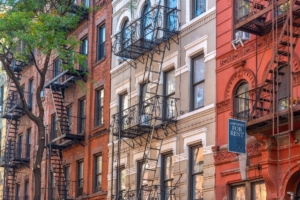If you’re having a legal dispute with your landlord, there’s plenty of help available. In a perfect world, all apartment buildings would be safe and happy places to live, rents would always be fair, and repairs would be done thoroughly and quickly. But believe it or not, renting in New York City is not quite so perfect! In reality, renters often have disputes with their landlords and have no idea how to solve them. Thankfully, these agencies and organizations focusing on tenant rights in NYC can help you tackle your housing problems.
Federal and State Agencies
U.S. Department of Housing and Urban Development (HUD): HUD’s website offers factual information on federally assisted housing, fair housing, rights of displaced tenants, and more.
New York State Attorney General’s Office: The office of the Attorney General, Letitia James, offers a variety of information and resources for tenants and homeowners. Topics include tenant harassment, rent stabilization, source-of-income discrimination, habitability and repairs, and more. You can file a housing complaint, and there’s even a guide explaining how to recover a security deposit in small claims court.
City Agencies
Rent Guidelines Board: The NYC Rent Guidelines Board provides a wealth of information for renters. This is the place to look if you have questions about lease renewals, rent increases, or repairs. There’s a fact sheet about warranty of habitability — what makes an apartment legally fit to live in. The Resources section contains summaries of rent regulation laws, a glossary of terms, and more.
Department of Housing Preservation and Development (HPD): Established in 1978, HPD exists to “promote the quality and affordability of the city’s housing.” Their Housing Quality / Safety section provides information about heat and hot water requirements, elevators, fire safety, window guards, and more. The Tenants’ Rights and Responsibilities page offers a helpful FAQ, and the ABCs of Housing guide to housing rules and regulations for tenants is updated annually. You can also find out how to report various types of housing complaints.
Mayor’s Public Engagement Unit: The NYC Mayor’s Public Engagement Unit (PEU) connects New Yorkers to key city services, including a Tenant Support Unit. In July 2023, the PEU launched a live operator Tenant Helpline, which tenants can call to speak with dedicated Helpline staff and receive support for urgent housing crises. Just call 311 and ask for the Tenant Helpline.
Housing Court
New York City Housing Court: The city’s Housing Court website is where you can find court locations, hours, phone numbers, services, fees, forms, and more. You’ll also find legal information on nonpayment proceedings, illegal lockouts, and more.
Legal Assistance
Human Resources Administration: As of 2022, NYC’s Right-to-Counsel Law ensures access to free legal services for eligible tenants. The NYC Human Resources Administration website explains who is currently eligible and how to get help. The site also contains a list of nonprofit law offices that are contracted by the city to provide free legal services under the right-to-counsel law.
New York City Housing Court: The NYC Housing Court website also includes information on how eligible tenants can get a free lawyer for their Housing Court case under the right-to-counsel law. If you don’t qualify under the law, go to the Finding Legal Assistance page for other resources on finding a free or affordable lawyer. It even offers tips on how to represent yourself in court, if you choose to. In addition, the court runs a Volunteer Lawyers Program through which tenants can get free legal advice on their case from volunteer lawyers.
The Legal Aid Society: This advocacy group works to ensure all New Yorkers have equal access to justice. They provide free legal assistance on housing matters to those who qualify. To find out if you qualify, you’re encouraged to call the neighborhood office in your borough.
Rent Guidelines Board: The NYC Rent Guidelines Board website offers a comprehensive list of resources for finding legal assistance through various public and private organizations.







